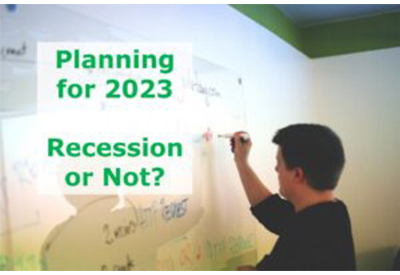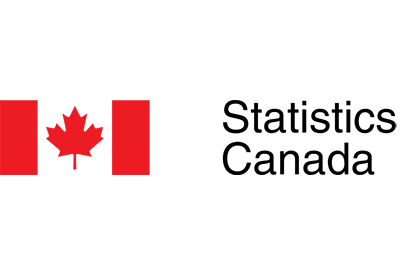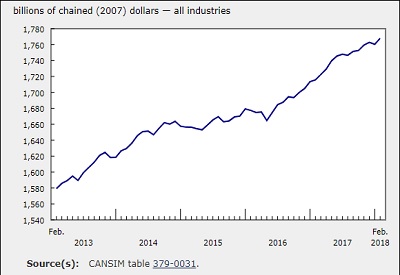10 Ways to Thrive In 2023 (Even if There is a Recession)

November 15, 2022
By David Gordon, President, Channel Marketing Group
The markets up, the markets down. You listen to economists and you hear about recession and will the Fed raise rates or hold. Large technology firms are laying people off by the thousands but electrical distributors and manufacturers cannot find people. Electrical product supply chains have gotten better but you then hear of the transformer and switchgear / control companies with 50+ week backlogs. And then there are large construction projects announced in the automotive sector to support EVs, opportunities with industrial companies and proposed infrastructure investments supported by government funding.
So, while the media and economic tea leaves are hard to read, the key is to remember that every market is local and you are in control of how you will perform in 2023 (I know, it’s obvious). You can either let the tide control your business or act.
Recently I wrote an article for IMARK Now
10 Ways to Thrive During an Economic Downturn
“You may remember the phrase “it was the best of times; it was the worst of times.” Well, the past two years have had both.
The best of times for distributors and manufacturers can best be exemplified by looking at your sales and gross profit dollars. For most, it has been the best of times, especially when PPP monies in 2020 are included. Additionally, the resilience of your work force to adapt and serve customers during trying times should be recognized. As an industry faced with numerous challenges, kudos to all.
It has also been “the worst of times” given that we’ve had to battle with COVID and its ebbs and flows and supply chain disruption.
But rather than rehash the past, let’s look forward.
If we listen to the economic and media pundits, the worst of times, as summarized with the R word (recession) may be coming. No one knows when but, in the words of Larry Summers, former Federal Reserve chairman on a recent Bloomberg television interview, “sometime within the next two years.”
Many believe some level of a recession is coming due to high inflation and rising interest rates which leads to “demands” for higher wages, higher product costs and a slow / declining economy. These are further hastened by COVID, supply chain disruptions and the war in Ukraine.
But remember, the axiom that what goes up inevitably comes down. And look what happened with the copper market in June. Price drops about 25%. Extrapolated over a year, this could be a 5% reduction in many company’s revenues! More importantly, it is a reduction in gross margin dollars which means less profit … and could necessitate less expenses.
Consider:
- A rising economy, at some point, slows its growth rate or declines a bit.
- Inflation, which can be exasperated by supply chain issues, and compensation increases.
- Fuel costs have risen versus last year and expectations are that corporate healthcare costs will rise again for 2023.
- COVID is not going away. While this has employment and staffing issues it also has supply chain issues. China’s zero tolerance policy, if continued, can have a supply chain impact at any time – provinces closed = factories closed = no exports for a month or more = less products to sell and more distributor backlogs.
According to input in Channel Marketing’s Group’s Q2 Pulse of Lighting study, 55% of distributor respondents do not track the number of units sold.
Why is this important? Because if you don’t know if your business is slowing, especially your stock business, because filling backlog masks the decline, you may be in the midst of a personal recession without knowing it. There is a myriad of metrics that companies can consider for tracking activity (email / call if you’d like a list.) The key is, make sure you have an early warning system.
The question then becomes, what to do?
If you follow DISC, the electrical industry’s preferred economic forecaster for over 35 years, a slowdown is predicted for the remainder of this year and a modest electrical industry recession is projected to start in mid-2023.
There are three ways to operate a business in a recession:
- Cut expenses to manage to the sales / profit stream
- Hope for better and muddle through, hence typically absorbing a loss, or
- Manage well, be aggressive, take share and grow your way out of it.
It’s all about management choice and business philosophy. Decide to participate in it or not.
The good news is that, for most, business is currently good. This enables companies to profit when times are good. To gather their resources. To make desired, albeit prudent, investments and consider how to build a moat around customers while selectively targeting new opportunities.
Sounds easy (typical consultees speak!) but here are ten ideas to help you weather your personal recession (and decide to opt-out of the national one.):
- Seek ways to improve gross margins by taking advantages of opportunities in your pricing files. Supplier price increases are opportunities for profit optimization. Customers that are very small, and probably unprofitable even at 25-30% gross margins, are your low hanging fruit, but there are other opportunities.
- If suppliers are providing SPAs / ship and debits, take advantage of them.
- Invest in it, especially operationally-oriented technology to automate processes wherever you can to enable you to do “more with less” while having a stable cost structure. This also has long-term labor cost implications.
- While on the technology topic, identify tools that add value to your customers. As customer buyer demographics evolve, they want to interact with you electronically but, more importantly, they want self-service and ease. We call this providing omni-service. Some things to consider include:
- A robust website, even if it only has an online catalog. Adding commerce helps, but sometimes you need to take one step at a time. Don’t let perfection be the enemy of progress and timeliness.
- eMarketing … if you have the in-house skills, consider a tool such as HubSpot or make better use of your email marketing tool (they have engagement functionality.)
- Text communications
- Electronically connect with customers
- What modules does your ERP offer that are customer-facing that you are not using? Image capture? Delivery signing? Others
Some consider investing in technology “digital transformation”, which can be daunting. Think of it as “smart business.”
- The supply chain issues may get better, but the emphasis is on “may”. With COVID you need to be aware of what the fall / winter may bring … if not here, then in China as their zero-COVID policy could disrupt key supply chains again. If you have the cash, stock up on A and perhaps some B items. In a recession, cash is king, but you cannot generate cash without something to sell.
- Speaking of selling, review your sales metrics and ensure that your salespeople are salespeople and not account managers. Accountability is key. A key distribution metric is gross margin dollars / invoice. It is all about profitable sales. Other key metrics relate to market share of a salesperson’s account base, the percent of their business coming from key customers and new account (and sales) development. Salespeople remain vital to customer retention, as the electrical industry is a relationship business.
- Customer insight can drive performance. Ensuring customers are satisfied means more than talking to key customers. A well-crafted survey solicits input while making them feel that their input is appreciated. Well-run companies take this input and act upon it to make their company better. This goes beyond an NPS score, this gets to root issues you can act upon.
- Data analytics help but remember that they are rear-view window oriented. They inform but are not deterministic, especially in project-oriented businesses. Use the information to gather account level and salesperson level gap analysis information, to guide pricing and inventory decisions, as informational tools to support suggestion selling. Invest some. Know your numbers but remember, every investment needs an ROI.
- Marketing is a core complement to sales as marketing is a salesforce multiplier. Good marketing can be a business differentiator, a messenger, and an auxiliary salesperson when your salesperson is not present and to accounts that sales does not call on. You need to invest in an integrated marketing strategy, inclusive of thoughtful eMarketing. And marketing should be supported by key suppliers but not be designed to be a profit generator from suppliers.
- Part of your marketing strategy can be a loyalty and incentive initiative. Not loyalty as in “give them points” (that wastes valuable funds in a recession), but loyalty as in “what activities signal their loyalty and what do they value?” It requires customer research and understanding the buying journey. Incentives can work for independent contractors to help take market share from within an account, but they do not work for all audiences. Consider how to build a moat around your customers with the guiding mantra of “how can I make my customer WANT to do business with me?”
Research shows that companies that invest in cost-saving, productivity enhancement and revenue generation initiatives come out of a recession sooner and at a greater growth rate … and some next participate in the recession! Given that today there is only talk of a recession, take the opportunity to strengthen your business. Make prudent investments with today’s cash so that you can gain market share, sales, and profits longer-term.
A Recession?
Now, do I think that there will be a recession? Yes, the country will have a recession as
- Inevitably, at some time, there will be one.
- I do not think that the Fed can “engineer” a soft landing and time it exact. Economics is an inexact science. They either will be short or over-reach. The question is more “by how much”.
But, in every recession there is inevitably some bright spots – either market segments, geographies or companies. Consider this … state capitols and Washington DC rarely, if ever, suffer much from recessions. Why? Politicians don’t want it occurring in their backyard and allocate funds plus those businesses tend to be steady (government entities that employ many.)
For the electrical industry, there are major secular trends that benefit our industry … renewables (solar, wind), data, healthcare, food, power generation, EV investments, industrial reshoring / expansion, geographic migration.
And for many, there are opportunities to take market share.











